Last Updated on December 17, 2025 by Hannah Stephenson
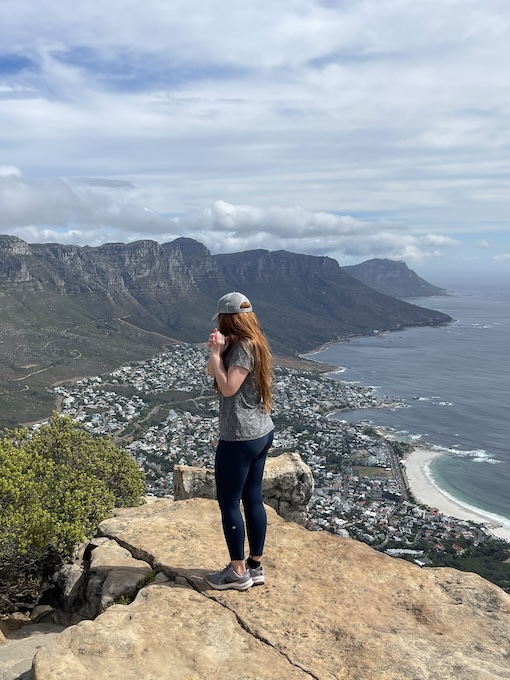

I never believed in love at first sight until I arrived in Cape Town.
The digital nomad lifestyle in Cape Town is unparalleled. With its breathtaking scenery, great weather, and affordable cost of living, Cape Town is the kind of place that really does make you feel grateful to be alive.
I was only supposed to spend three months here, and yet I ended up making it my permanent home! So if you’re thinking about living as a digital nomad in Cape Town, I’ve written this guide containing absolutely everything you need to know about life in the Mother City.
- Pros of living as a digital nomad in Cape Town
- Cons of living as a digital nomad in Cape Town
- Frequently Asked Questions About Living in Cape Town
- How do you find accommodation in Cape Town?
- Which are the best areas to stay in Cape Town?
- How much does it cost to live in Cape Town?
- How do you pay for stuff in Cape Town?
- How to cope with loadshedding?
- Is it dangerous to live in Cape Town?
- What are the best coworking spaces in Cape Town?
- What is the work-life balance like in Cape Town?
- Does Cape Town have a digital nomad visa?
- How long can I stay in Cape Town?
- What is healthcare like in Cape Town?
- How do you get a South African SIM card?
Disclaimer: this post contains affiliate links. When you make purchases through my links, I may earn a small commission at no extra cost to you. This helps to keep The Cape Town Blog up and running! Thanks so much for your support.
Pros of living as a digital nomad in Cape Town
It’s beautiful

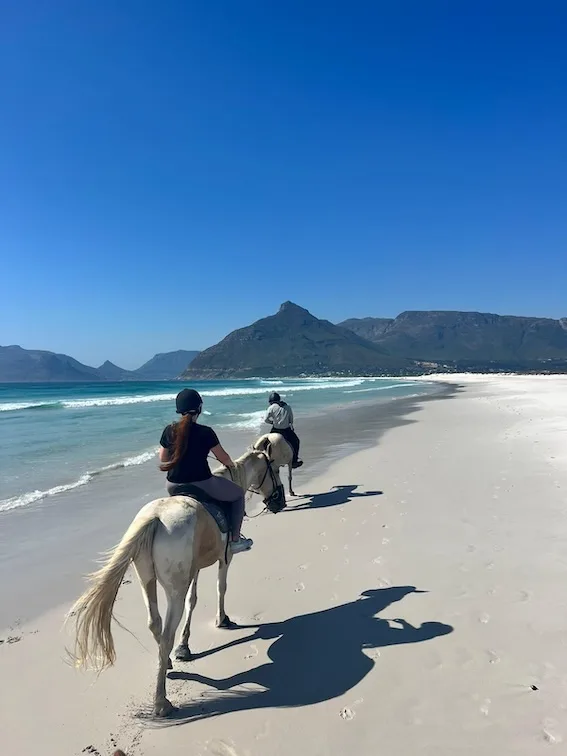
Cape Town is an incredibly beautiful city. You can see either a mountain or the ocean pretty much anywhere you go… and often, you can see both!
All of this natural beauty (plus the excellent weather) is very conducive to an active, outdoor lifestyle. You can go for a hike in the morning, and then spend the afternoon on the beach.
Cape Town is cheap if you earn pounds, dollars, or euros
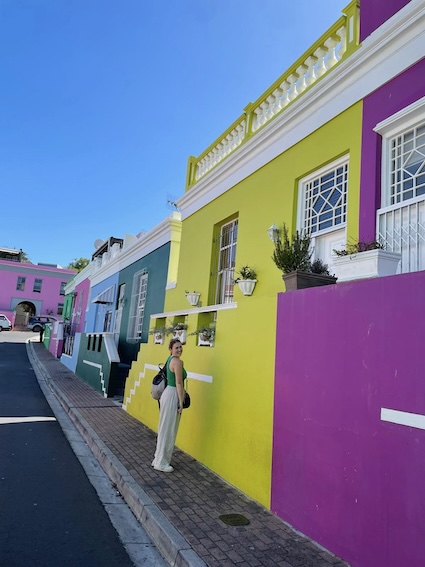

Due to the weak rand, Cape Town is a very affordable place to live if you’re earning pounds, dollars, or euros.
I would say it’s at least 50% cheaper than living in London – if not more!
I’ll get into this more later on, but to give you an overview: you can rent a 2-bed, furnished apartment in one of the best neighbourhoods in town from R16,000 per month (£800) and rent a room for even less.
Groceries, utilities, petrol, transport, and eating out are all way cheaper in Cape Town.
Laidback lifestyle
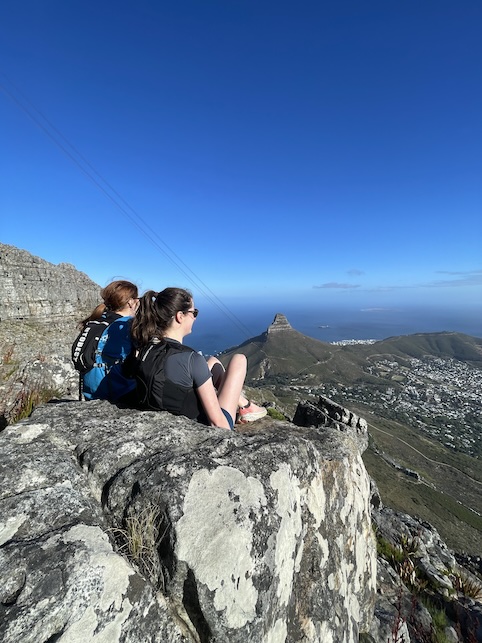

Capetonians love their leisure time and really do prioritise a healthy work-life balance.
After 5 pm on any given day, you’ll find hundreds of people heading to the rock pools for a swim, walking along the promenade, and the bars are filling up with people looking for a post-work glass of wine.
All of the fun stuff in Cape Town – be it hikes, beaches, or bars – is so accessible that there’s really no need to live for the weekend.
Capetonians are friendly

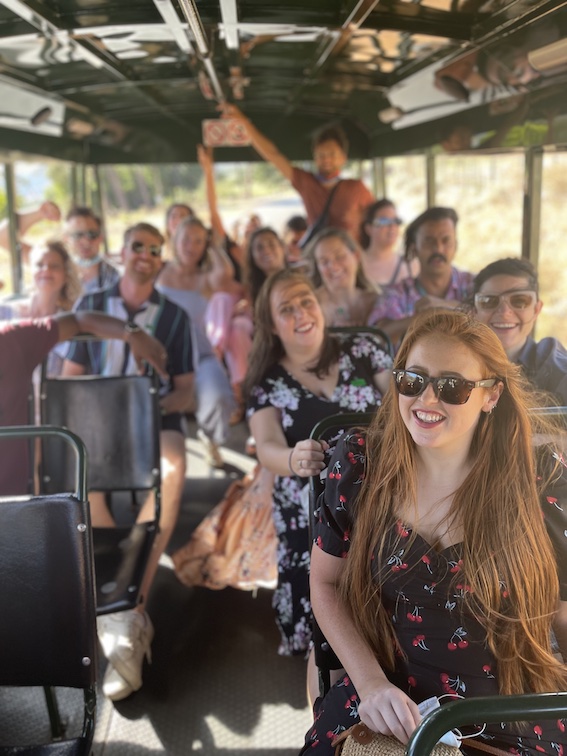
I’ll preface this by saying that some South Africans consider Cape Town to be cliquey, but I think that that’s just in comparison to the rest of the country where everyone is even friendlier.
I’ve always found locals to be super welcoming, friendly, and willing to show me all that Cape Town has to offer!
Capetonians are (understandably) very proud of their city and as a digital nomad, it won’t take long before you’re being invited for brunch, braais, and beach days.
Lately, there have been some locals making some less-than-polite comments about digital nomads on TikTok but this doesn’t reflect my experience in person. As long as you’re friendly, make an effort to get to know locals, and don’t keep harping on about how great the exchange rate is for you, then you’ll be sure to meet some great people!
It’s easy to get around Cape Town
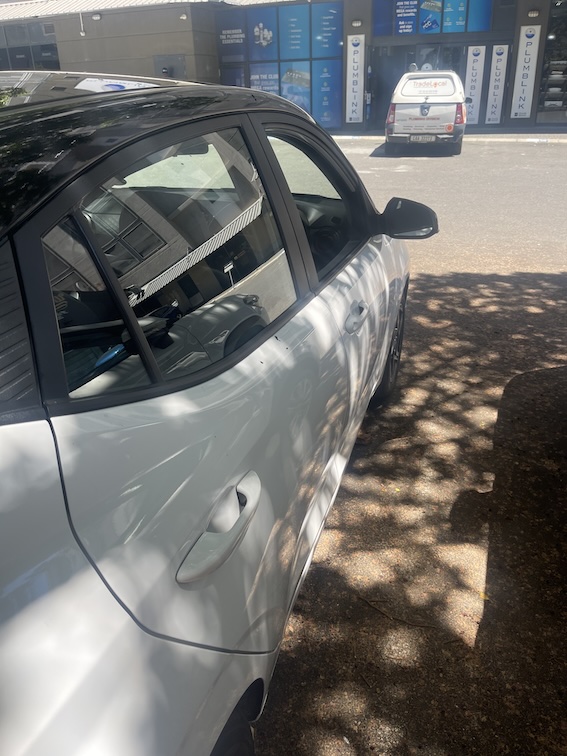
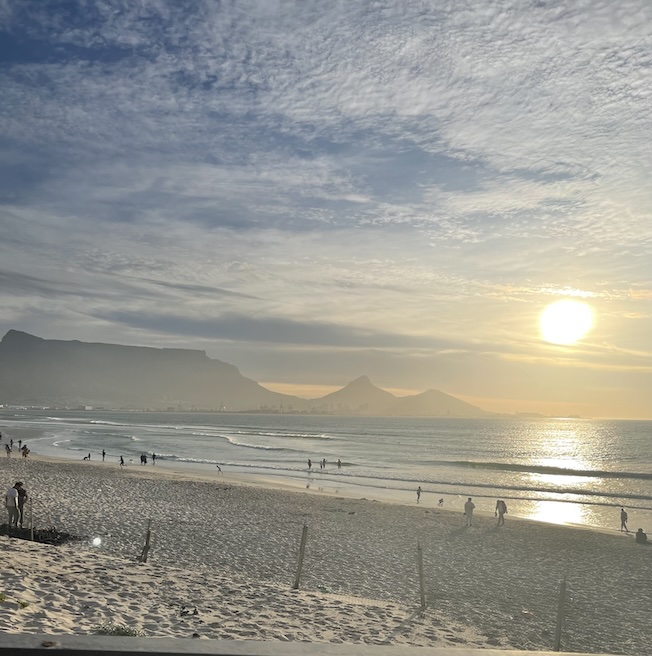
Cape Town feels like a very compact city, and most of the good stuff is pretty close together. It really never takes you that long to get from A to B! Lots of the neighbourhoods in Cape Town are very walkable.
I use Uber a lot here and have never had any problems. The MyCiti bus is also a cheap, safe, and convenient way to get around.
You can also rent a car pretty cheaply. But if you do want to drive in Cape Town, make sure you read this guide!
You never feel the need to “escape”

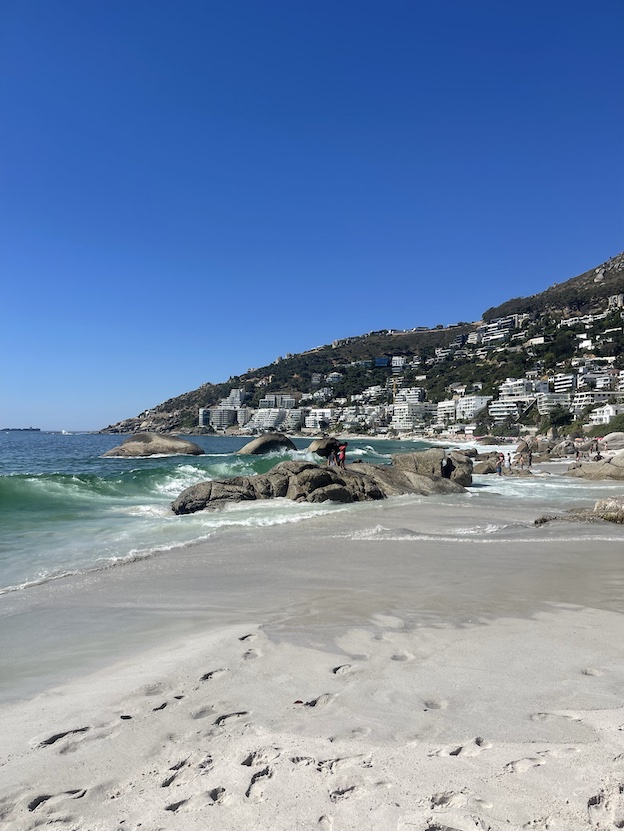
Sometimes when you live in a major city, you feel the need to get out fairly frequently and get some peace and quiet.
But in spite of its buzzing entertainment scene, Cape Town isn’t like that!
You can be in the CBD at 9 am, and hiking in the mountains or chilling at the beach by 10 am. Every day here really does feel like a holiday.
Lots to explore nearby

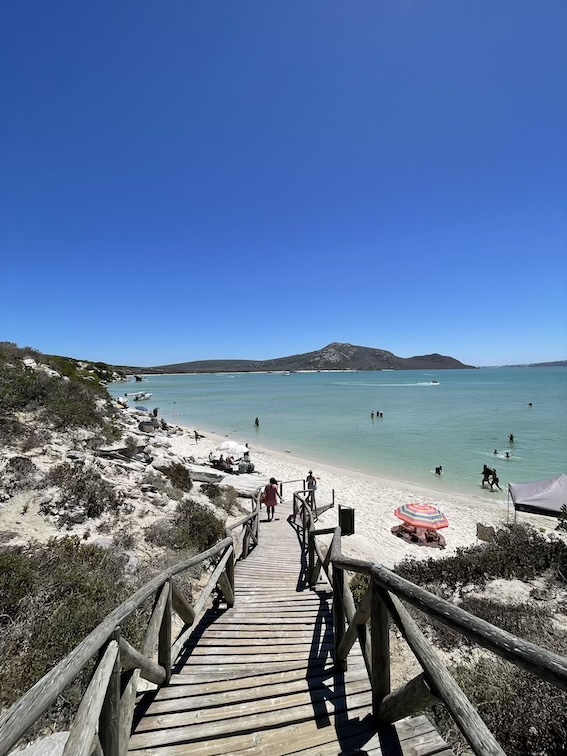
Okay, so I know I just said that you don’t need to get out of Cape Town regularly to maintain your sanity, but there are also lots of beautiful places to explore fairly close to the city.
Hermanus is a 2-hour drive away, or you can take a road trip along the famous Garden Route. There are also tons of fun day trips on offer!
Amazing wine


South Africa is famous for its wine, and most of it is grown and bottled on the Western Cape. There are some fantastic wine bars in the city itself (I like OpenWine) but exploring the winelands is an absolute must while you’re here.
I highly recommend exploring Franschhoek on the famous wine tram. The scenery is breathtaking and riding around the gorgeous valley on an old-school tram is so much fun. But you’ve also got:
Check out my ultimate guide to wine tasting in Cape Town for more info!
Great food
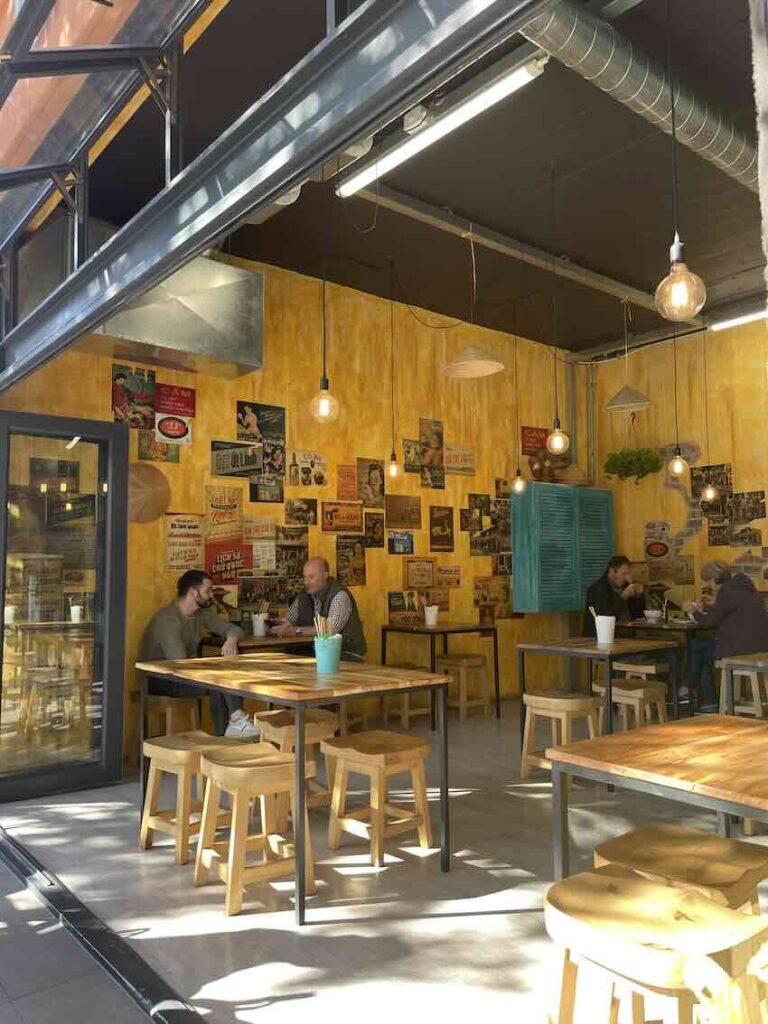

Cape Town is a melting pot of cultures, and all of the different flavours and cooking styles that come with this are reflected in the food scene.
Plus, South Africa is known for its excellent produce (especially meat and dairy), so everything is made with all of the best local ingredients! One thing I really love about the city is that although there are some chains around, there are also a ton of independent restaurants to choose from.
Cons of living as a digital nomad in Cape Town
It’s far away from other popular nomad destinations
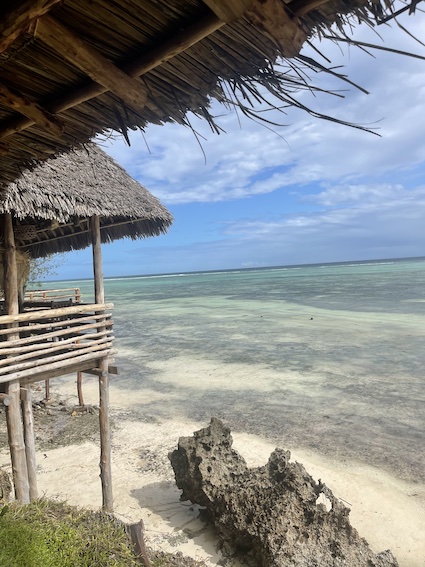

Cape Town is an awesome place to live, but it’s not exactly a quick flight from other nomad hubs like Lisbon, Chiang Mai, and Bali.
If you’re travelling as a digital nomad in Europe or Southeast Asia, it’s usually just a quick and inexpensive flight to your next destination.
Cape Town’s location means that it’s not a very convenient place to travel to if you’re only planning on staying for a few months.
On top of this, travel inside of Africa tends to be very expensive and there aren’t always great flight routes available. I think I could have flown all the way back to the UK in the time it took me to get to Zanzibar!
The visa situation can be tricky


South Africa offers a 90 day visa exemption for many nationalities, including many European and South American countries, the US, and the UK.
Getting in for 3 months isn’t an issue, but visa extensions can be a bit of a nightmare. It’s not a quick or reliable process. Meanwhile, a visa run here is NOT the cheap, half-day process it is in Southeast Asia.
The digital nomad visa has been launched but honestly, I can’t even work out how to apply! They don’t make it easy.
Safety
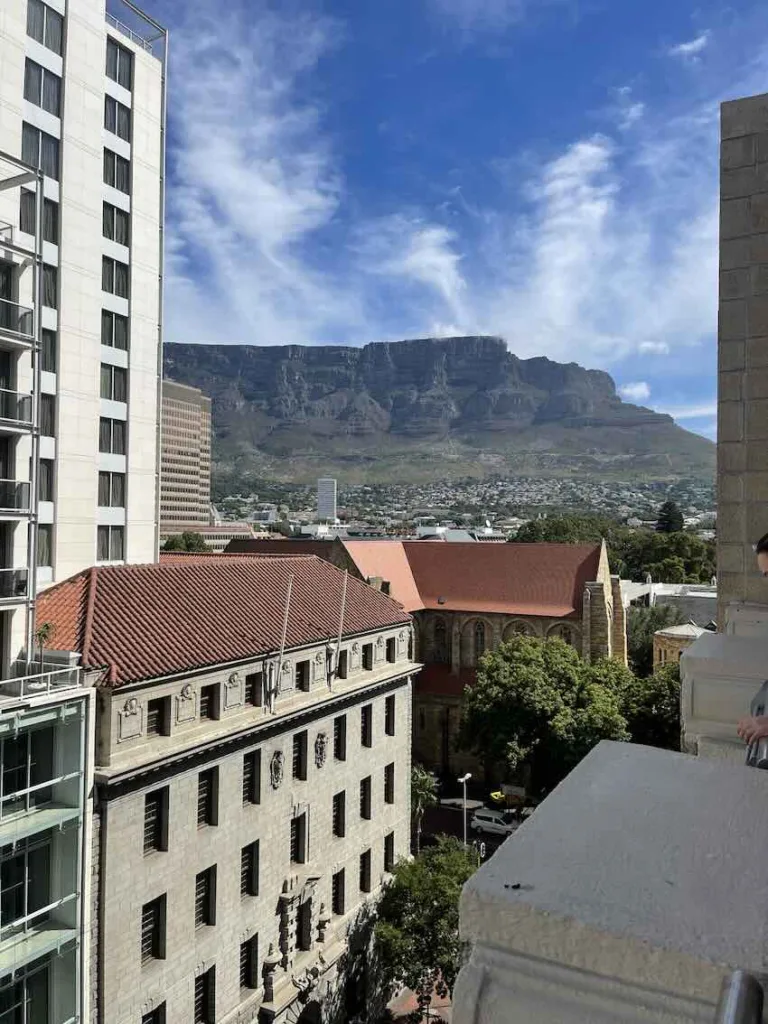
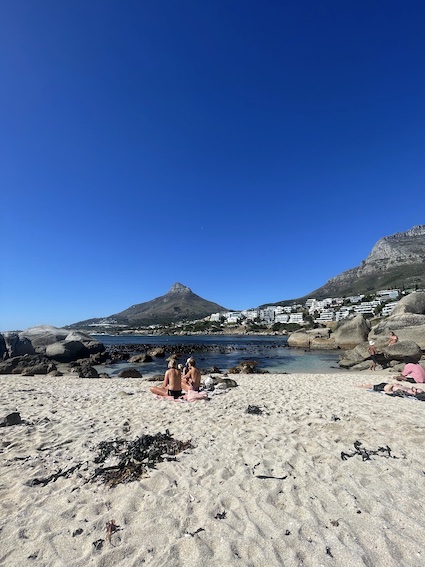
Statistically speaking, Cape Town is dangerous. Levels of burglary, assault, and theft are high. Several of my friends were mugged or pickpocketed during the first year that I lived in the city.
Admittedly, those aren’t crime stats that make you want to move somewhere. But please, please, please don’t let that put you off of Cape Town. It’s not as dangerous as the numbers make it seem.
The thing is, a lot of the crime in Cape Town is contained to areas like the Cape Flats and Lavender Hill, which is not somewhere you’re likely to be venturing as a digital nomad. The crime here is very separated and there are areas that are mostly safe.
I feel comfortable in Cape Town. I walk around during the day, I go for runs by myself, and I don’t feel in constant danger.
I take the same precautions that I would take in most cities. I don’t walk alone after dark, I wear a belt bag when I go out, and I don’t wave my phone around outdoors.
I actually feel significantly safer in Cape Town than I did in Bali, which is generally considered to be a lot safer.
For more on how to stay safe in Cape Town, check out these tips.
Loadshedding
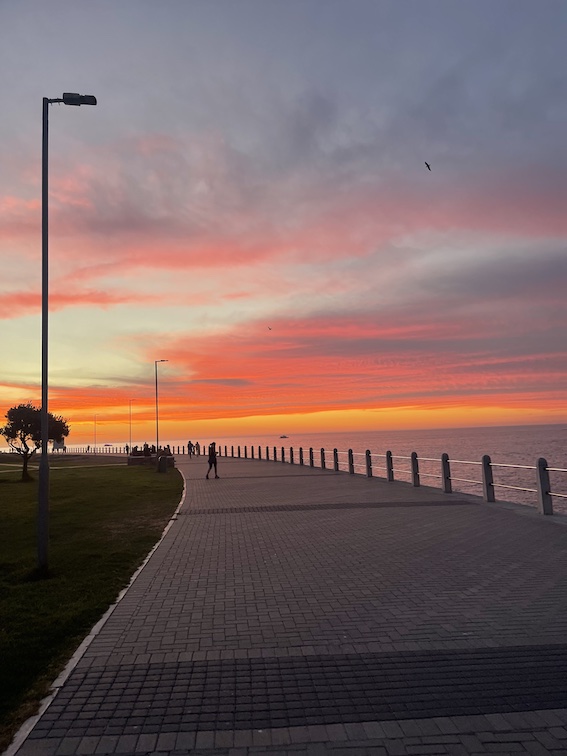
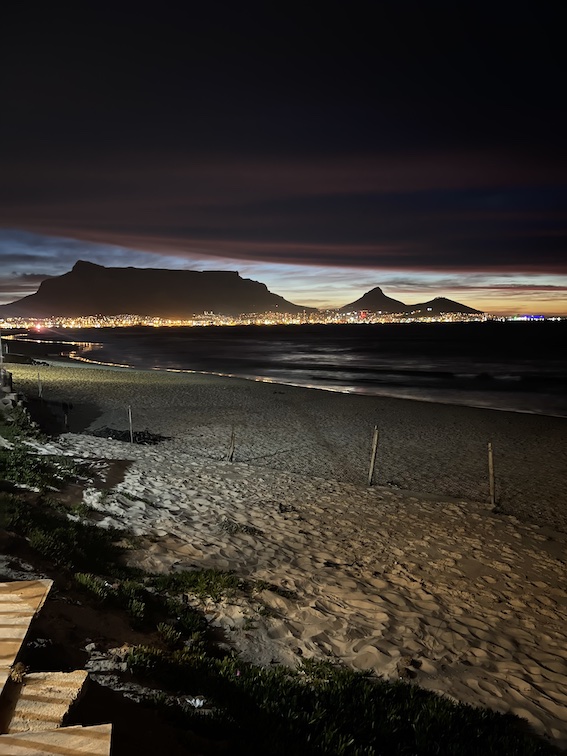
Probably the biggest inconvenience you’re going to face on a day-to-day basis in Cape Town is loadshedding.
Loadshedding is when Eskom (South Africa’s public power company) schedules blackouts in certain areas that last between 2-4.5 hours at a time.
It’s been a lot better over the past year or so, so I won’t harp on about it too much, but Eskom do still like to surprise us from time to time!
The EskomSePush app will tell you when load shedding is going to happen on any given day… for the most part. Every now and then, you’ll get a notification that tells you “SURPRISE! LOAD SHEDDING IN 5! SUCKER!”
(Not really, but that’s how it feels.)
You can search for the neighbourhoods you spend the most time in and add them to your “My Areas” list. This way, you can access the schedule easily and get push notifications so that you’re not caught off guard.
Frequently Asked Questions About Living in Cape Town
How do you find accommodation in Cape Town?

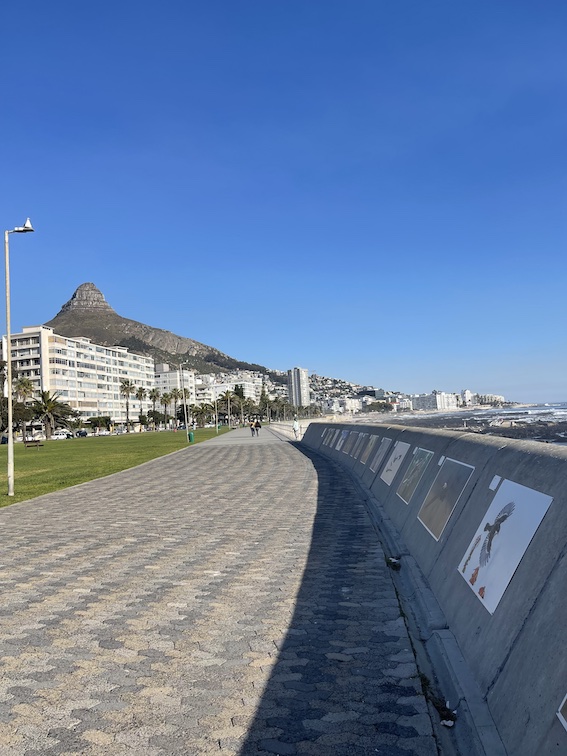
A lot of digital nomads in Cape Town use AirBnb but you’ll probably end up paying at least double the local rate. AirBnb is also pushing prices up for locals so I do suggest finding accommodation via other routes if possible.
If you’re staying for a while, you can use Property24 to find an apartment. Most places require a 12-month lease, and there are some furnished options available.
I have mostly found my homes in Cape Town on the Huis Huis Cape Town Facebook Group. It’s a great place to find yourself a month-to-month situation or short term rental, particularly if you’re just looking for a room rather than an entire place.
Which are the best areas to stay in Cape Town?

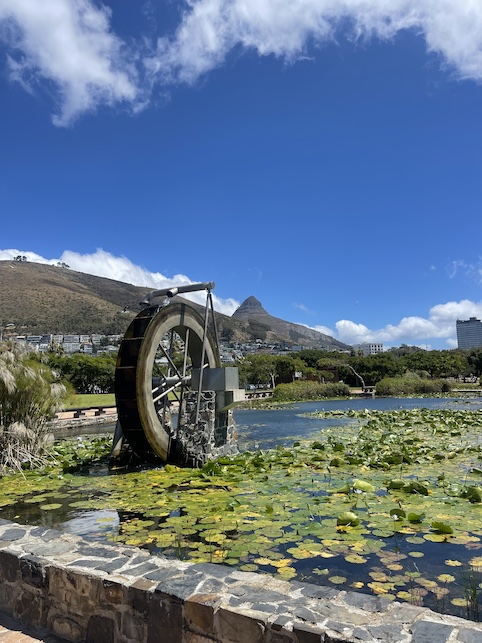
Of course, it helps to get an idea of where you want to live in Cape Town before you start searching! I’ve got a full guide on where to stay in Cape Town that really breaks it down for you. However, I’ll give you a quick list of the best areas here:
- Sea Point
- De Waterkant
- Gardens
- Tamboerskloof
- Green Point
- Mouille Point
- Vredehoek
How much does it cost to live in Cape Town?


I always find this difficult to answer because a lot of this depends on your lifestyle. Overall, though, I think that Cape Town is a very affordable place to live if you’re earning in pounds, dollars, or euros.
Here are some ROUGH estimates of what your monthly expenses could look like. Exchange rates flucutate all the time so I’ve just given the prices in rand.
- Room in a shared apartment or house in a nice neighbourhood: R10,000
- 2-bed apartment in a nice neighbourhood: R22,000 per month
- A main meal in a mid-range restaurant: R120 – R250
- Bottle of wine in a mid-range restaurant: R130 – R270
- 10GB mobile phone data: R469
- Large takeaway cappuccino: R50
- Cleaner: R400 per day, depending on the size of your home
How do you pay for stuff in Cape Town?
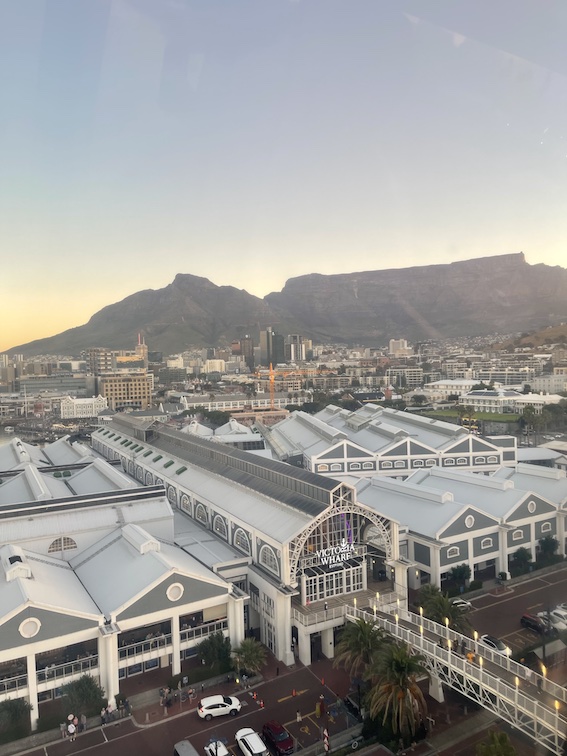

South Africa is very much moving towards a cashless society, especially in major cities like Cape Town. You can use a credit or debit card to pay for almost anything in Cape Town, and many festivals and outdoor markets won’t take cash.
Plus, you get charged about R70 every time you make a cash withdrawal, in addition to any fees your own bank might charge you.
I think that the best thing to do is to get a debit or credit card without any fees and use that as your main payment method.


Personally, I use Monzo, which is an online UK bank, and I’ve found it to be absolutely fantastic.
They have no fees for foreign transactions, you can withdraw up to £200 in cash every month without any fees on their end, and they make it really easy to open and manage different savings pots and accounts.
Of course, there are a couple of exceptions. I use Wise to pay my rent, as it’s cheaper, faster, and easier than my regular bank account.
I do have a Wise link which gives you a fee-free transfer of up to £500 on your first go, but no pressure.
Do note that the first time each year that you transfer money to a South African bank account, the recipient will have to fill in a form with their details and say why you’re sending the money.
And just a quick note, if you do withdraw cash, DO NOT accept the currency conversion. You’ll end up paying about 12% more and there’s literally no benefit to it. Always select “proceed WITHOUT conversion.”
How to cope with loadshedding?

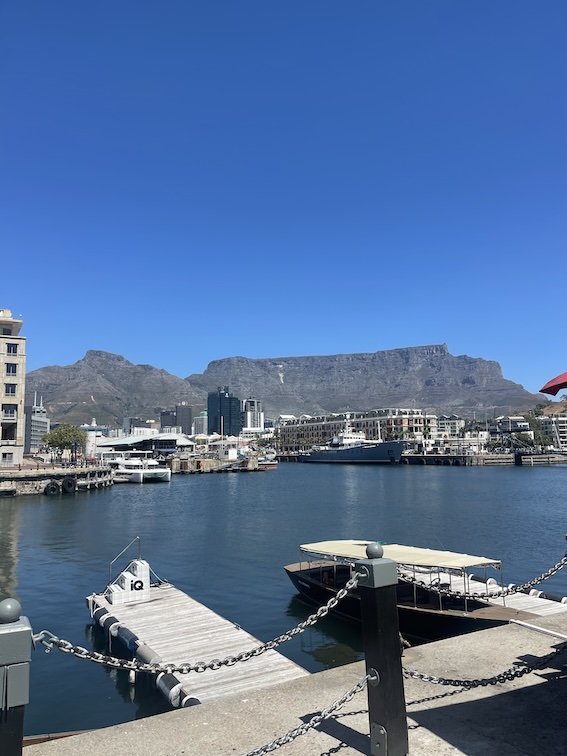
As discussed, load shedding is freaking annoying. Honestly, there’s no foolproof way to deal with it all the time because sometimes Eskom likes to change the schedule with little to no warning, but there are a few ways you can prepare for these irritating outages.
- Buy a battery pack to charge your phone
- Make sure you’ve got plenty of mobile data
- Buy an inverter to power your WiFi and charge your devices
- Get battery powered lights and lamps
- Plan your gym visits around loadshedding (lots of gyms tend to have generators)
- Don’t be in the lift when the power is due to go out
Is it dangerous to live in Cape Town?
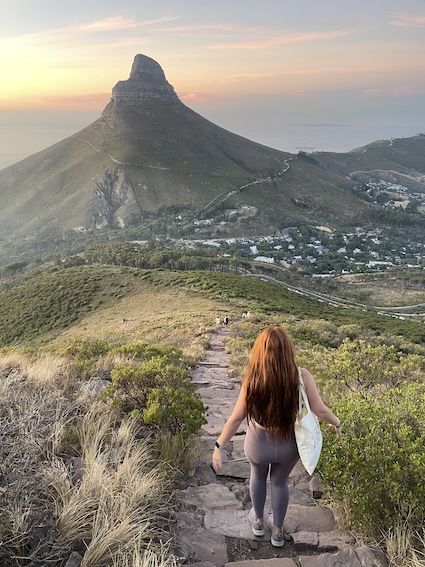

I really want to say “no, it’s not dangerous at all”, but the truth is that Cape Town is a dangerous city. There are areas that you should just flat-out avoid, and you need to exercise caution.
Most people I know have been mugged at some point – almost always at night, I hasten to add – ranging in degrees of severity from phone snatching to being dragged along the road.
But I don’t want this to put you off of living in Cape Town. I do feel safe here. I think that the reality of living in any big city is that at some point, someone’s going to try to steal your shit.
The really violent crime in Cape Town is largely contained to certain areas, and in the parts of the city that most digital nomads actually spend time in, you just need to be careful of your belongings and not go wandering around alone at night.
What are the best coworking spaces in Cape Town?

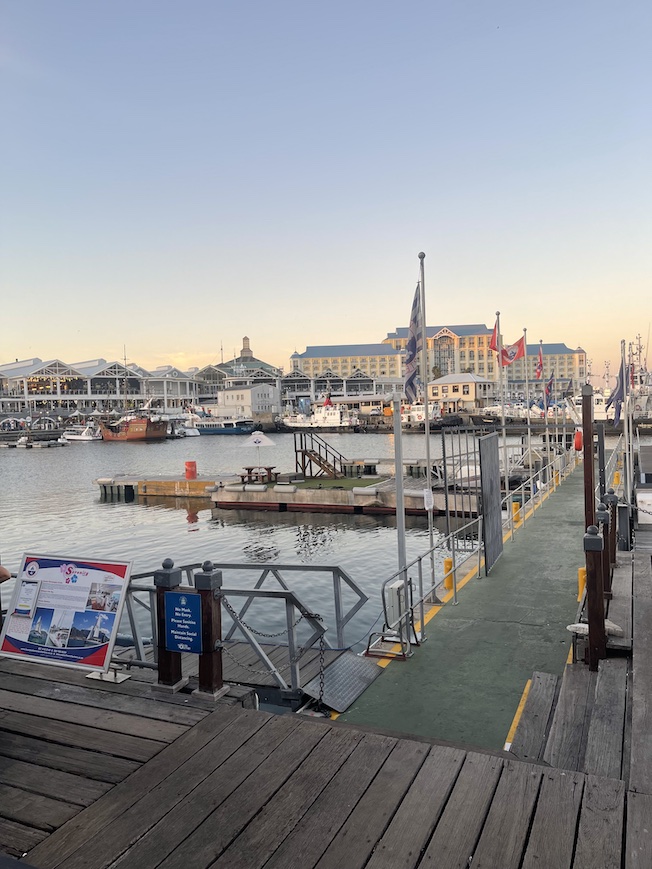
There are some really great coworking spaces in Cape Town although I’ll be honest, I’m not really that partial to them myself.
However, I do love 22Fifty! It’s friendly, welcoming, and membership is a STEAL compared to other co-working spaces at just R450 per month. That’s less than half what any other co-working space will charge you. And the owner, Woody, is awesome.
Some other popular spots are:
- WeWork in the CBD
- WorkShop17, which has locations both at the V&A Waterfront and on Kloof Street in Gardens
- Ideas Cartel in Green Point
What is the work-life balance like in Cape Town?

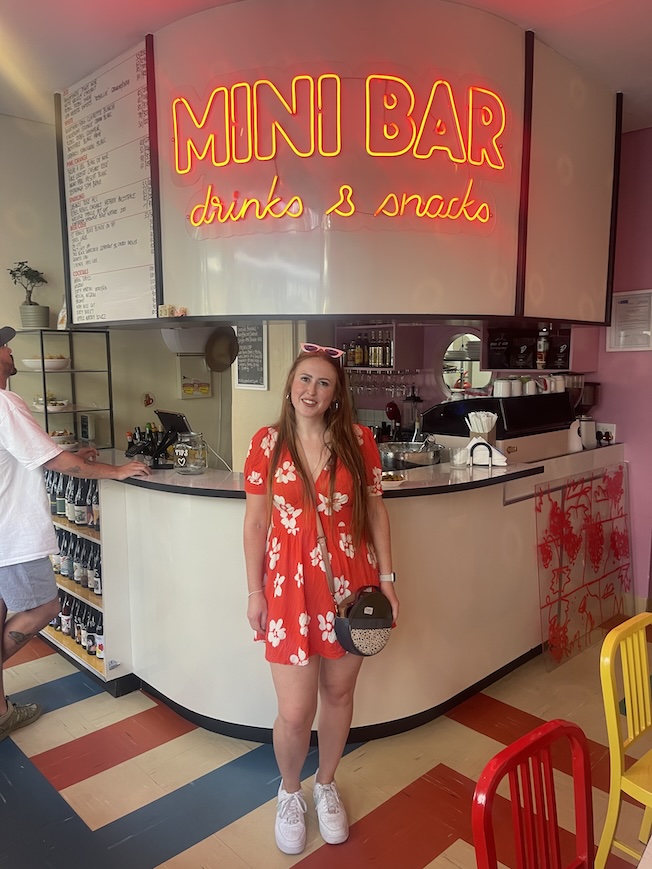
Capetonians place a lot of importance on a healthy work-life balance. My friend who works in Johannesburg said that it’s nigh-on impossible to get anyone from Cape Town on a Zoom call on a Friday afternoon!
A great work-life balance is easy to achieve when you’ve got beaches and mountains on your doorstep.
After you shut your laptop at the end of the day, you can head down to the beach for sunset or go for a walk on the promenade and leave the day behind.
Way better than simply transferring yourself to the couch and putting on Netflix, if you ask me!
Does Cape Town have a digital nomad visa?
Yes, although I have not applied for one myself yet.
It’s not very clear on how to apply but here’s what I do know:
The digital nomad visa is basically a subsection of the visitors visa. It’s officially called “Visitors Visa Section 11(1) B (iv) for prescribed activity of remote work.” You can check the list of requirements here.
The visa lasts for up to 3 years and you’ll have to register with SARS (the South African tax man) if you plan to stay for over 6 months. Some countries do have a double taxation agreement!
How long can I stay in Cape Town?
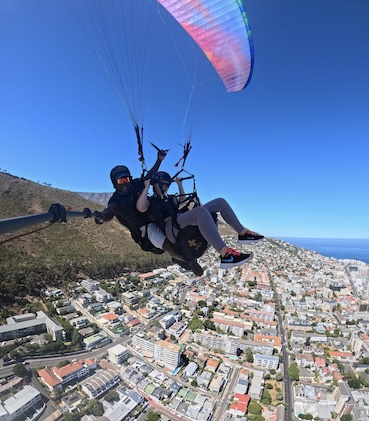
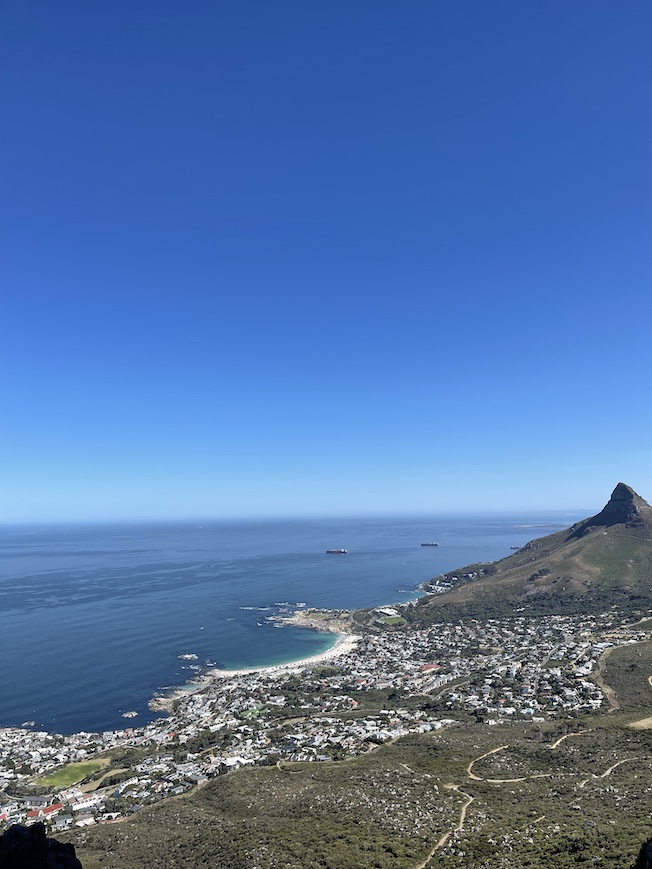
South Africa offers a 3-month visa on arrival for lots of countries, including the UK, the US, and much of Europe. So the chances are that you won’t need to arrange a visa beforehand and can simply rock up and get a stamp.
You can extend your tourist visa for another 3 months to stay in South Africa for up to 6 months at a time. You can only do this once, and you need to apply for the extension during your first 30 days in the country.
It’s a big headache and the process is very poorly organised. If your visa extension is approved, you might not get the whole 3 months, either.
I’ve applied for a tourist visa extension 3 times, and it has always been approved, but there have been some hiccups along the way! It’s not a reliable process so you don’t always get the full amount of time you asked for.
There is also now the digital nomad visa which allows remote workers to stay for up to 3 years, although uptake has been slow on this because the application process is confusing.
What is healthcare like in Cape Town?
Public healthcare isn’t great. Private healthcare is excellent.
Lots of South Africans have private medical insurance, or Medical Aid, but you can’t get this if you’re on a tourist visa, so it’s best to make sure that you have travel insurance with a good level of healthcare coverage. You really don’t want to end up in a public hospital.
If you need to visit a doctor while you’re in Cape Town, it’s pretty affordable. I went for a pap smear while living there which only cost R400. I was expecting it to be significantly more expensive than that!
Prescriptions are also pretty cheap. It’s unlikely you’ll end up paying more than R200 for any medication.
How do you get a South African SIM card?
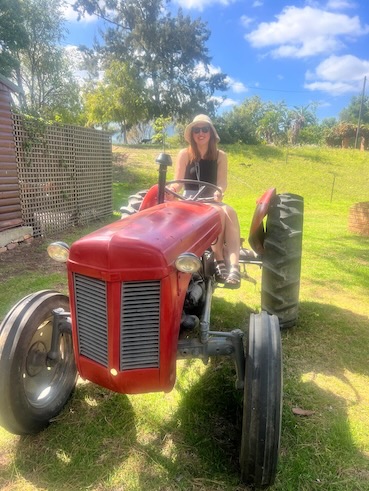

These days, I just use an e-sim! It’s quicker and easier than securing a physical SIM card and it doesn’t cost any more.
I used to use Vodacom’s tourist SIM and top it up with data every 30 days. However, I couldn’t do this online with a foreign bank card and so I had to go into the store every time.
Now, I just use my AirAlo sim so that I can top it up online. It’s so much easier.
